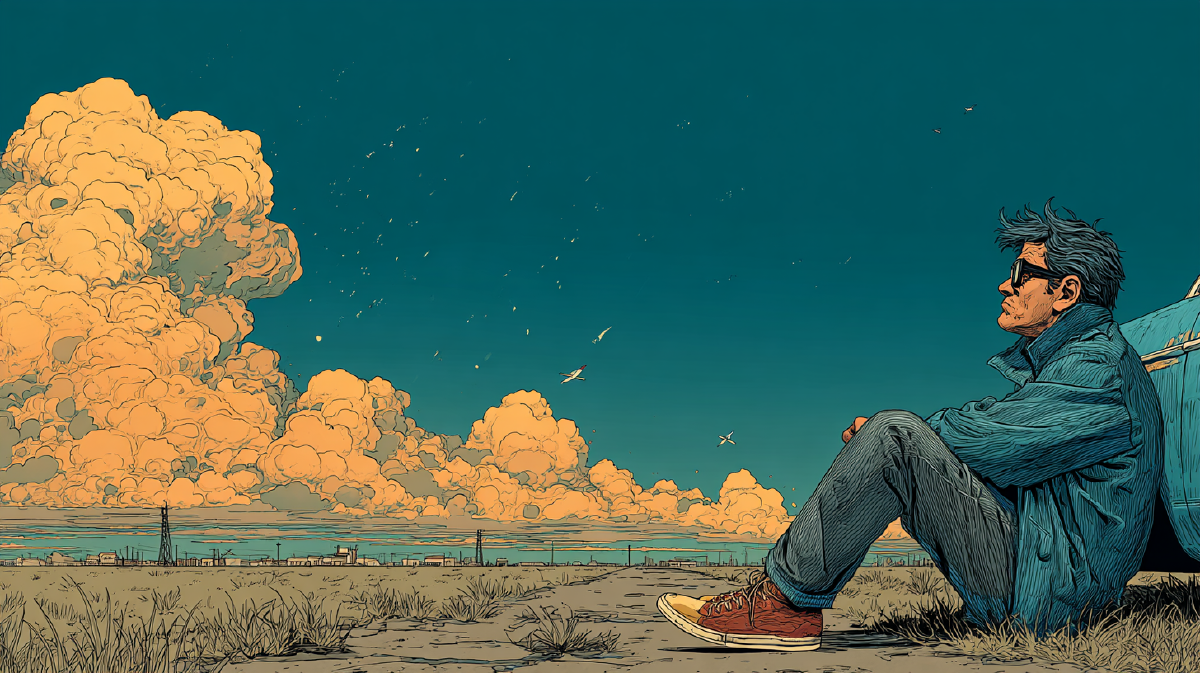Life’s been moving at the speed of a ChatGPT response lately. Every morning brings another AI model that supposedly changes everything, another region lighting up on conflict maps, and another headline about someone’s mental health unraveling in spectacular public fashion. The unemployment numbers tick up while rent prices seem to have developed their own cryptocurrency-style volatility. It’s like watching civilization play speed chess with itself.
And here I am, post-midlife birthday (because apparently we’re not calling them “over the hill” anymore), wondering when exactly “keeping up” became a full-contact sport.
There’s something almost quaint about the phrase “stop and smell the roses.” As if roses haven’t been replaced by algorithmic garden recommendations and subscription-based pollination services. But maybe that’s the point. Maybe the act of literally slowing down—not productivity-hacking our way to mindfulness, not optimizing our breathing patterns—has become the most radical thing we can do.
The Stoics had this concept: Memento mori. Remember you will die. Cheerful stuff for a weekend, but stick with me. Marcus Aurelius wasn’t being morbid; he was being practical. When you remember that none of this frantic keeping-up actually matters in any cosmic sense, suddenly carving out your little corner of existence doesn’t feel like giving up. It feels like the sanest thing you could possibly do.
I used to think falling behind meant losing. Now I’m starting to suspect it might mean finding something worth staying still for.
The world will keep racing. AI will keep evolving. People will keep struggling with costs and changes and the particular madness of our moment. But somewhere between the breaking news alerts and the anxiety about not being the person who effortlessly surfs every new wave, there’s this quiet revelation: your space in the world doesn’t need to be optimized for maximum throughput.
It just needs to be yours.
The waves might come anyway—they always do. But at least you’ll meet them standing on ground you chose, in a place you built to last. (Even if “built to last” now means “survives until the next software update.”)
